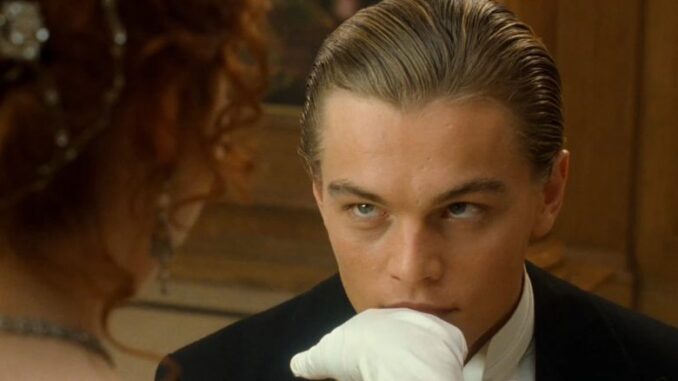
The Crucible of Sacrifice: Why Jack's Death in Titanic Was Inevitable
James Cameron's epic film, Titanic, is more than just a visually stunning recreation of a historical tragedy. It’s a meticulously crafted love story, a class commentary, and a potent exploration of survival, loss, and the enduring power of memory. Yet, for years, a nagging question has persisted: could Jack Dawson, played by Leonardo DiCaprio, have fit on the infamous floating door alongside Rose DeWitt Bukater, portrayed by Kate Winslet? While the internet remains rife with calculations and debunking experiments, Cameron himself has definitively stated that Jack's death was not a matter of physics, but a narrative imperative. He argued that Jack had to die for the story to work, and examining the film’s themes and structure reveals the profound truth in his assertion. Jack’s demise isn't simply a heart-wrenching plot point; it’s the cornerstone upon which the entire emotional architecture of Titanic is built.
Firstly, Jack’s death serves as the ultimate catalyst for Rose's transformation. Before meeting Jack, Rose is a gilded cage bird, trapped in a suffocating engagement with the arrogant and controlling Cal Hockley. She’s a vessel of societal expectations, slowly suffocating under the weight of her mother’s ambition and the superficiality of the upper class. Jack, the penniless artist, throws open the windows of that cage, exposing Rose to the vibrant hues of freedom, passion, and genuine connection. He teaches her to spit, to paint in the nude, to embrace life without reservation. However, this newfound liberation would be fleeting and ultimately meaningless if Jack survived. Had they both lived, Rose might have settled into a bohemian existence with Jack, their rebellion fading into a comfortable, albeit unconventional, routine. Jack’s death, however, forces Rose to carry the weight of his ideals, to live the life he envisioned for her, a life filled with purpose and independence. She is propelled to fully realize the potential he saw within her, transforming from a passive object into an active agent of her own destiny. In essence, Jack’s sacrifice is the fire that forges Rose into the strong, independent woman she becomes.
Secondly, Jack's death functions as a powerful symbol of class disparity and the inherent injustice of the disaster. The sinking of the Titanic was, undeniably, a tragedy magnified by the stark inequalities of its time. First-class passengers had a significantly higher chance of survival, with access to lifeboats and a privilege denied to those in steerage. While the film highlights instances of both nobility and cowardice across classes, Jack’s death starkly illustrates the devastating impact of this disparity. He embodies the working class, the individuals whose dreams and lives were so readily sacrificed in the pursuit of luxury and ambition. Had Jack survived, this inherent injustice would be diminished. His presence on land, alongside Rose, might even suggest a reconciliation between the classes, a possibility that history simply does not support. Jack’s demise, therefore, becomes a poignant representation of the collective loss of the underprivileged, a reminder of the human cost of social inequality.
Furthermore, the tragedy of Jack’s death elevates the film beyond a simple romance and imbues it with a timeless quality. While the love story between Jack and Rose is undeniably compelling, it’s the enduring pain of loss that resonates most deeply with the audience. Jack's sacrifice turns the film into a meditation on mortality, memory, and the enduring power of love in the face of overwhelming tragedy. We see the echoes of Jack’s influence throughout Rose’s long life, from her horseback riding to her embrace of adventure. He lives on, not just in her memories, but in the very fabric of her being. Had Jack survived, their love story would have been contained within the historical narrative, a fascinating tale of star-crossed lovers aboard a doomed ship. However, his death transforms their relationship into a timeless allegory for the enduring power of love and the profound impact one person can have on another’s life, even in the face of unimaginable loss.
In conclusion, while the physics of the floating door may remain a point of contention, James Cameron’s assertion that Jack had to die for Titanic to work is undeniably true. Jack's death is not merely a plot device designed to elicit tears; it is the narrative linchpin that allows the film to explore themes of class disparity, personal transformation, and the enduring power of love in the face of tragedy. He is the crucible of Rose’s transformation, the embodiment of social injustice, and the catalyst that elevates the film beyond a simple romance into a timeless meditation on the human condition. In the end, Jack’s sacrifice is not just a heart-wrenching moment; it is the defining act that ensures Titanic remains a powerful and enduring testament to the enduring human spirit.